
For a guy whose job requires him to spend his time in the clouds, Joe Piotrowski is amazingly down to earth. Piotrowski works at the National Aeronautics and Space Administration (NASA)’s Armstrong Flight Research Center (AFRC). The center is located at Edwards Air Force Base in Edwards and Palmdale—both in California. Piotrowski serves as both a lead operations engineer and a mission director. He says, “I work with an instrument known as UAVSAR (Uninhabited Aerial Vehicle Synthetic Aperture Radar). It is used in science experiments that help people learn about volcanoes, thunderstorms, earthquakes, oil spills, landslides, and many other projects. I love my job because I get to be up close and personal with airplanes. But every single day is different with different assignments.” Piotrowski described how far aircraft have come since the Wright brothers successfully flew their Flyer for a minute on a North Carolina beach.
What is UAVSAR? Why was it created?
UAVSAR sends and receives radio waves to the ground to get information about Earth’s different features. Scientists use UAVSAR to see how Earth’s ground depth is changing—to the nearest centimeter. For example, I flew a mission in Maine where we used UAVSAR to study soil moisture. We first flew over the ground before a rainstorm. Then we flew over the ground after a rainstorm to see how much water the ground absorbed. The information we gathered helped to show where potential areas of flooding were and where better places to plant fruits and vegetables are.
この記事は Cobblestone American History Magazine for Kids の November/December 2023 版に掲載されています。
7 日間の Magzter GOLD 無料トライアルを開始して、何千もの厳選されたプレミアム ストーリー、9,000 以上の雑誌や新聞にアクセスしてください。
すでに購読者です ? サインイン
この記事は Cobblestone American History Magazine for Kids の November/December 2023 版に掲載されています。
7 日間の Magzter GOLD 無料トライアルを開始して、何千もの厳選されたプレミアム ストーリー、9,000 以上の雑誌や新聞にアクセスしてください。
すでに購読者です? サインイン
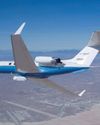
Eye in the Sky
An interview with Joe Piotrowski
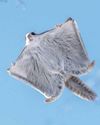
Airborne Animals
Humans have taken to the skies in balloons, gliders, and airplanes-but we're not alone among the clouds. Animals of all sorts have evolved to harness wind power.
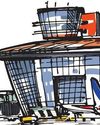
TAKING OFF
The Wright brothers expected airplanes to “take off,” but even they might be amazed at the way the airline industry has become big business. In the past, it was expensive to send something by plane.

GROWTH OF AN INDUSTRY
After their historic flight at Kitty Hawk in 1903, Wilbur and Orville Wright returned to Dayton, Ohio. They spent the next few years making adjustments and building additional versions of their powered aircraft in their bicycle shop.
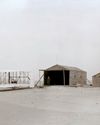
WHY KITTY HAWK?
The Wright brothers searched carefully for the best place to test their gliders and flying machines. Their main concern was for good, steady winds. But they also hoped to find a remote location to allow them to perform tests away from the public eye.
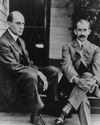
Two Brothers From Ohio
Most people do not realize that the Wright brothers—Wilbur, born in 1867, and Orville, born in 1871—performed various scientific experiments before inventing their aircraft. For as long as anyone in their hometown of Dayton, Ohio, could remember, the Wright boys had worked on mechanical projects.
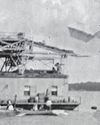
A Helping Hand
May 6, 1896. A group of people who had gathered beside the Potomac River, just south of the U.S. capital, grew quiet. Then, it erupted in cheers as a small, unmanned aircraft took to the skies and flew for more than half a mile. The flight came seven years before the Wright brothers’ first manned, powered flight. The inventor of the aircraft was Dr. Samuel Pierpont Langley.
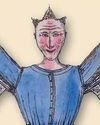
THE IDEA MEN
People dreamed of flying thousands of years before the Wright brothers found success near Kitty Hawk, North Carolina. These dreamers, such as Leonardo da Vinci, studied birds flying and imagined how humans might do the same—if only they had wings. Other men developed a more hands-on approach to the topic. Early inventors made wings of cloth, glue, and feathers and tied these creations to their arms in an attempt to imitate nature.
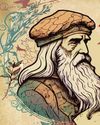
Da Vinci's 4 Designs
Have you ever wondered how a bird flies? Leonardo da Vinci (1452–1519) did. He thought that understanding how a bird flies would provide the key to human flight. So, what did da Vinci learn from birds?
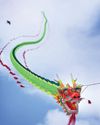
Silken Wings
Seven hundred years before the Wright brothers began experimenting with human flight, the Chinese had already mastered its secrets—with kites.